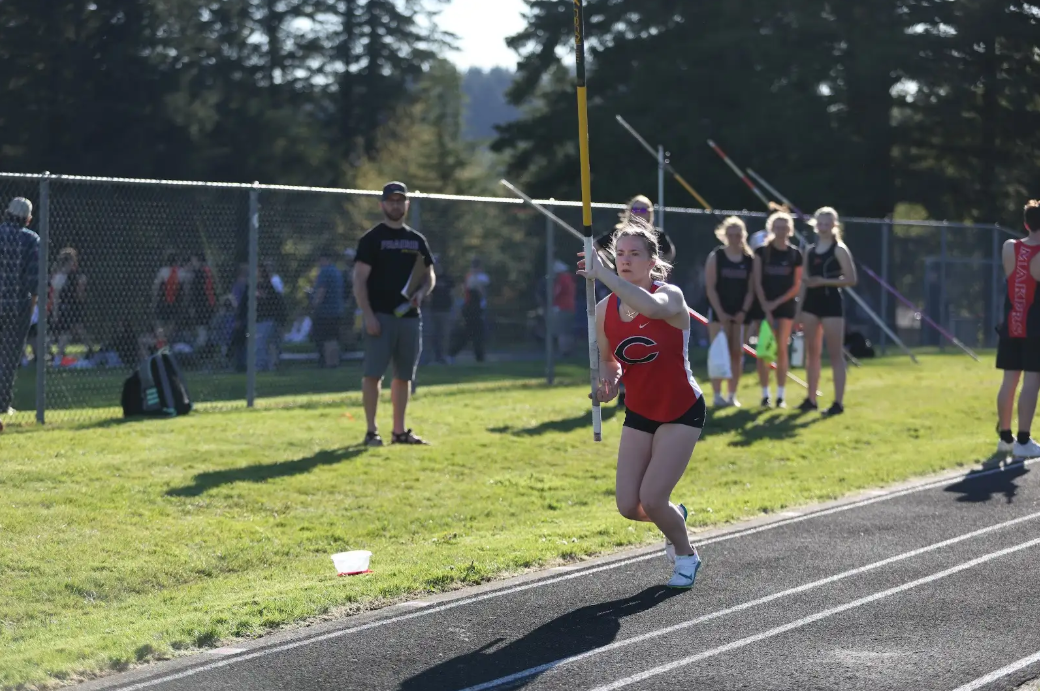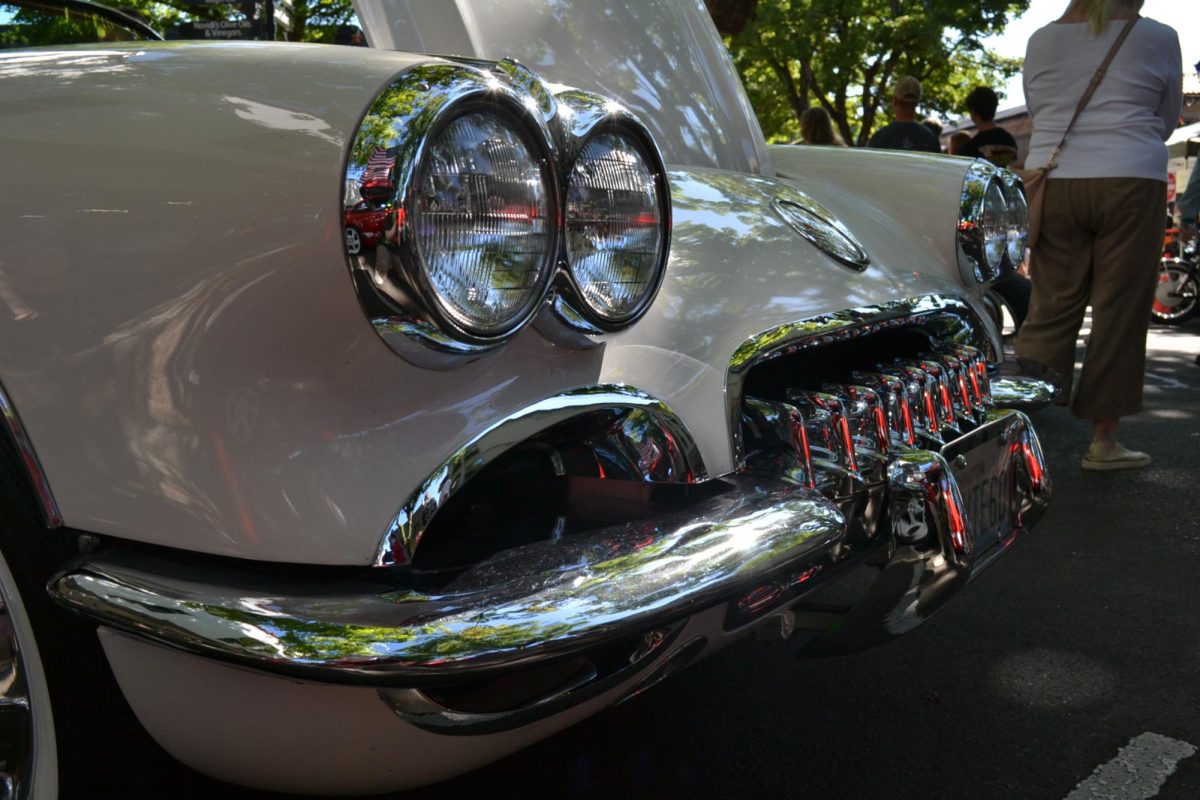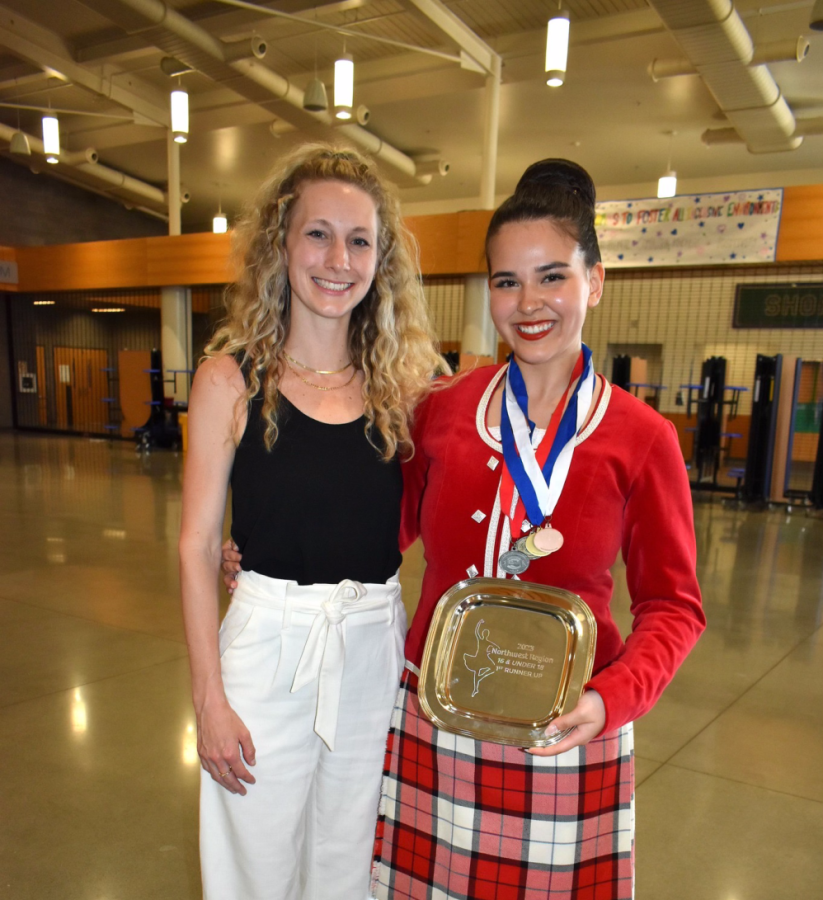Senior Feature: Leona MacGregor
May 24, 2023
Leona MacGregor, a senior at Camas High School (CHS), is a leader and a role model for many in various different ways. She is a DECA officer, a Key Club officer, the founder and manager of the Japanese Culture Club, and also an AP student. With all these roles needing her attention and time at once, it is safe to say that MacGregor has had a very busy year.
“With DECA, Japanese Culture Club, and Key Club work happening all at once, spare time for myself and my social life is rare. Balancing it all is very hard,” said MacGregor.
Lately, MacGregor has found her way back to another hobby of hers now that she has quit cheer and has freed up her schedule a little more.
“This year I started Highland dance again after taking a long break from it because of Covid. I did cheer from freshman year to junior year because I wanted to explore other things I’m good at, but I’ve found my way back to Highland dance this year,” said MacGregor.
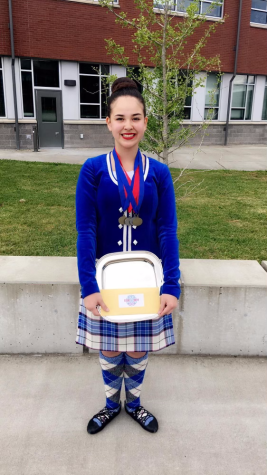
Highland dancing is a relatively rare practice of traditional Scottish dance that has been adapted into a professionally-scored dance regiment.
“[Highland dancing] is a traditional Scottish dance that has been practiced for several centuries and was originally used to show strength before battle,” said MacGregor.
Highland dancing consists of several different types of dance that all have different cultural meanings and all fit a specific type of Scottish music.
“There are many dances involved in Highland dance, including the fling dance, sword dance, the Seann Triubhas dance, and the Highland reel. The sword dance we do around a real sword that we aren’t allowed to touch at all because it symbolizes bad luck if we do. The fling and Seann Triubhas dances celebrate Scottish culture and have kicking motions that resemble ‘taking off our trousers’ and putting on our kilts because it celebrates Scottish independence from the British. The Highland reel is more of a party dance that we do with others which is always the most fun one,” said MacGregor.
Highland dancing is a surprisingly competitive sport as it is judged on a very technique-based regiment.
“The grading is based on pure technique. You have to be very precise and on time to do well. There’s a lot of memorization behind Highland dance,” said MacGregor.
MacGregor has participated in Highland dance for over 12 years and has a lot of memories from her various competitions over the years.
“My dad is a Scottish immigrant so I wanted to learn a bit of my dad’s culture as well as my mom’s, which is why I started the Japanese Culture Club,” said MacGregor.
“My favorite memory was my first year competing in the Pacific Northwest Regional Championship because it was my first time ever getting that far. My first time winning was in 2018 and it was a big milestone because regionals are against 7 states and only the top three in each age group in the region go to nationals, so it was very rewarding to go to nationals,” said MacGregor.
MacGregor has won regionals once again this year and will be going to nationals in July, even after taking several years off.
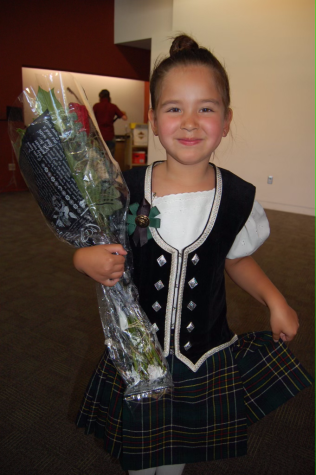
“It has been very hard work getting to this point though. We practice four times a week year-round with each practice being about an hour and a half to two hours long each day. Our practice is in either Portland or Vancouver, so the drive is also very long. It doesn’t sound like hard work because the dances are only about two or three minutes long, but there’s so much jumping and precise movement that doing it repeatedly for hours multiple times a week is absolutely exhausting,” said MacGregor.
MacGregor’s journey thus far has been a very demanding one, but meeting those demands always yields great satisfaction and accomplishment.
“Highland dancing is such a small market but it’s also very competitive and can be pretty intensive,” said MacGregor.
MacGregor is excited about another opportunity to compete in nationals before she goes off to college, where she will further pursue Highland dance.











